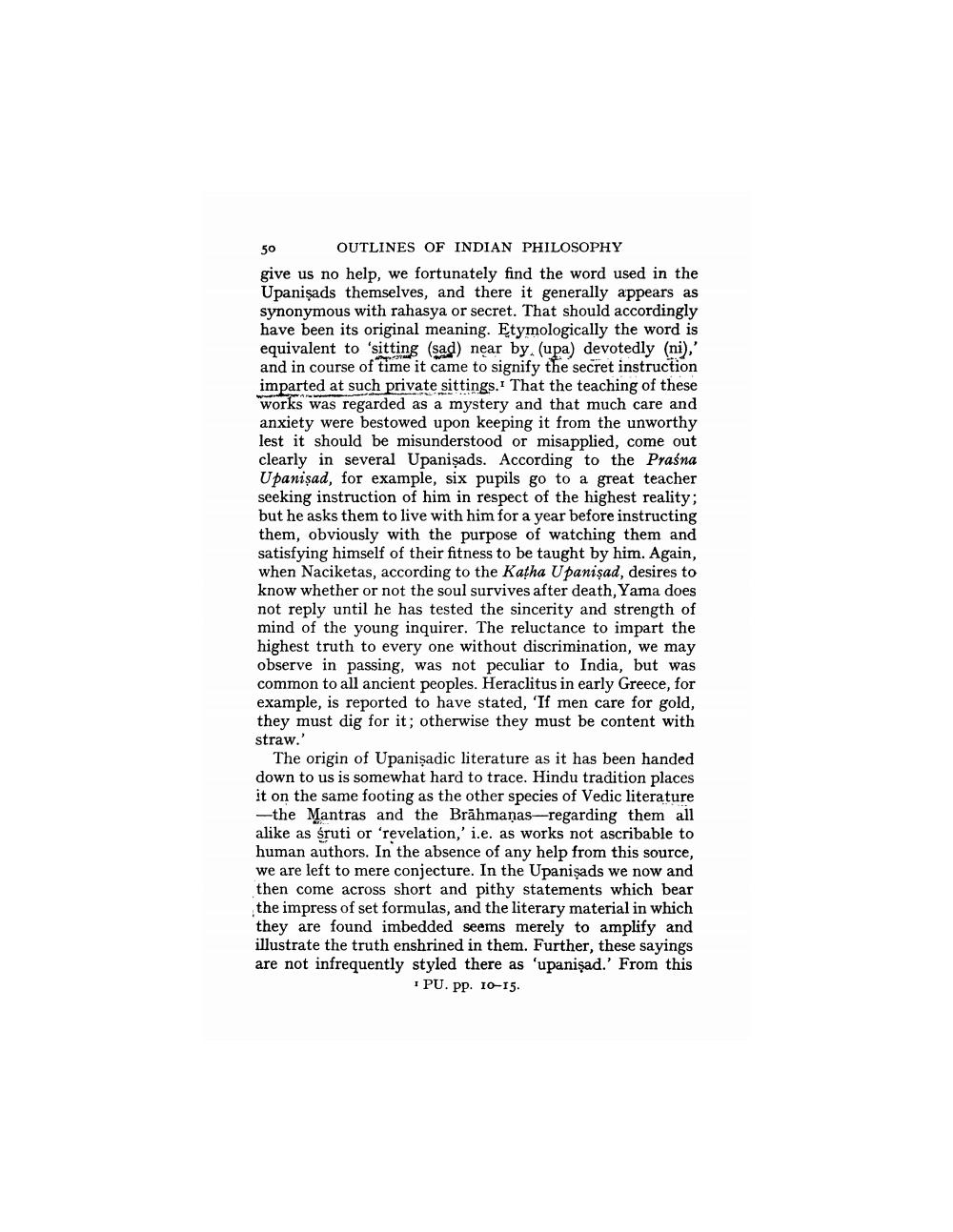________________
50 OUTLINES OF INDIAN PHILOSOPHY give us no help, we fortunately find the word used in the Upanişads themselves, and there it generally appears as synonymous with rahasya or secret. That should accordingly have been its original meaning. Etymologically the word is equivalent to 'sitting (sad) near by. (upa) devotedly (ni),' and in course of time it came to signify the secret instruction imparted at such private sittings. That the teaching of these works was regarded as a mystery and that much care and anxiety were bestowed upon keeping it from the unworthy lest it should be misunderstood or misapplied, come out clearly in several Upanişads. According to the Praśna Upanişad, for example, six pupils go to a great teacher seeking instruction of him in respect of the highest reality; but he asks them to live with him for a year before instructing them, obviously with the purpose of watching them and satisfying himself of their fitness to be taught by him. Again, when Naciketas, according to the Katha Upanişad, desires to know whether or not the soul survives after death, Yama does not reply until he has tested the sincerity and strength of mind of the young inquirer. The reluctance to impart the highest truth to every one without discrimination, we may observe in passing, was not peculiar to India, but was common to all ancient peoples. Heraclitus in early Greece, for example, is reported to have stated, 'If men care for gold, they must dig for it; otherwise they must be content with straw.'
The origin of Upanişadic literature as it has been handed down to us is somewhat hard to trace. Hindu tradition places it on the same footing as the other species of Vedic literature -the Mantras and the Brāhmanas-regarding them all alike as śruti or 'revelation,' i.e. as works not ascribable to human authors. In the absence of any help from this source, we are left to mere conjecture. In the Upanişads we now and then come across short and pithy statements which bear the impress of set formulas, and the literary material in which they are found imbedded seems merely to amplify and illustrate the truth enshrined in them. Further, these sayings are not infrequently styled there as 'upanişad.' From this
PU. Pp. 10-15.




